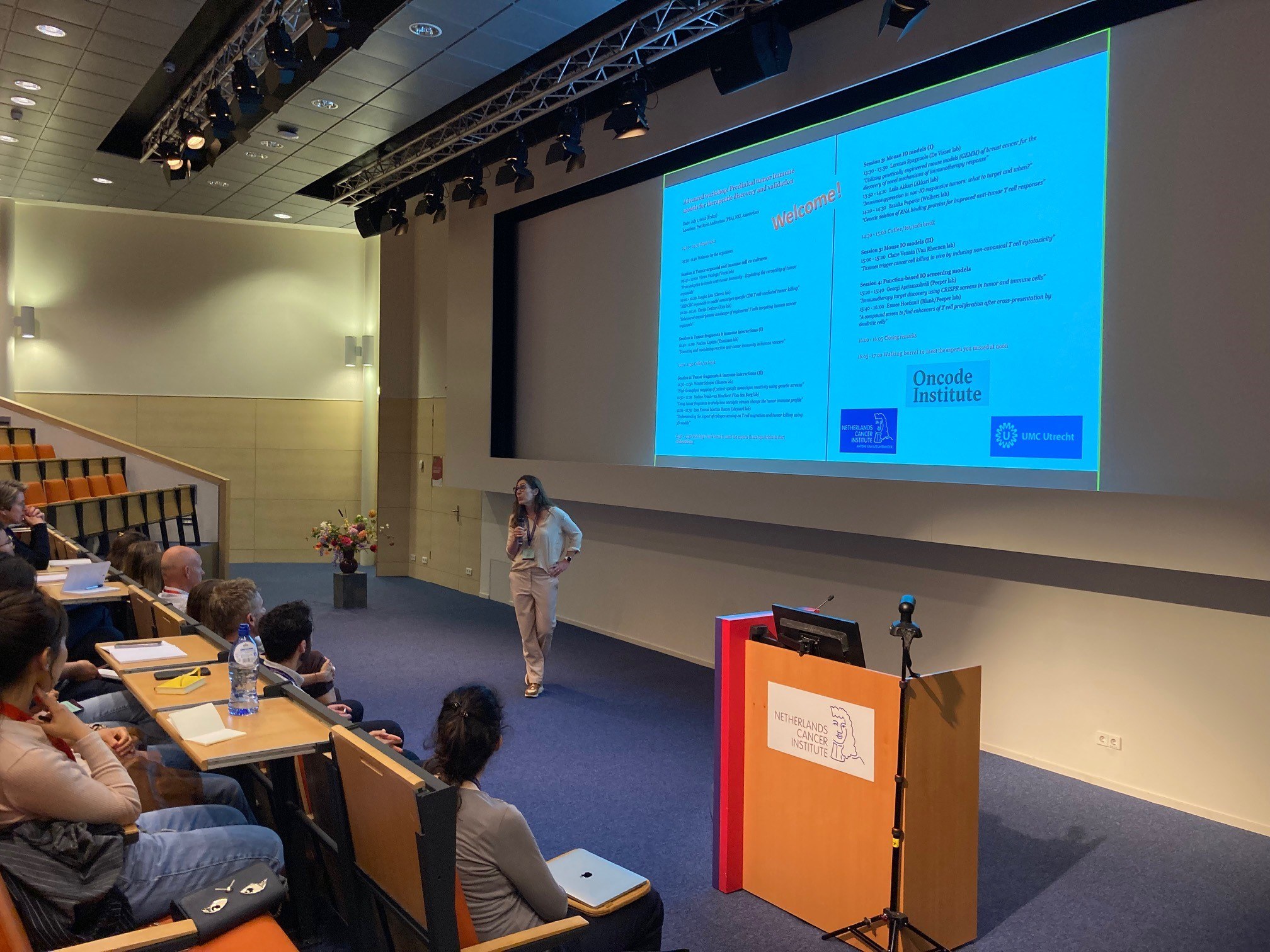With more than a hundred participants covering a broad community interested in the immuno-oncology field, this successful advanced workshop featured an exciting programme.
The next generation immuno-oncology (IO) programs are changing the landscape of cancer treatments. Despite the manifest importance of pre-clinical studies for advancing these assets, the lack of faithful and reliable IO models continues to pose a huge challenge to them and other researchers. These models by definition require an intact immune system, rendering the traditional human cell line and tumor xenografts in mice unsuitable. This leaves academia and biopharma in a position of being unable to advance potentially life-saving IO therapies through preclinical studies with the same rigor and velocity as non-IO compounds. This is exactly what the Oncode workshop has served, to get a better understanding of the current state-of-the art IO models available within the Oncode community and to build a network to foster future collaborations.
The goal of the workshop was to encourage and facilitate collaborations within the broader ecosystem of oncology drug development, to strengthen and exchange immuno-oncology (IO) research platforms. Thus, the event was open to all researchers interested in IO models, in the applications of these models and techniques for IO target identification and therapeutic development. Our junior scientists who have hands-on experience with the models and techniques, were particularly given a podium at this workshop and chaired the sessions.
Text continues under the image

The presentations examined three different areas. The first area we focused on was patient and ex vivo models, including organoid /T cell co-cultures to characterize patient response and for neoantigen prediction and CAR-T development (Voest and Clevers labs). The Anne Rios lab showed how their advanced AI driven imaging tools identify T cell super engagers. Other topics that were discussed include the patient-derived tumor fragment platform (PDTF), which is a human ex vivo tumor model for immune checkpoint blockade prediction by the Thommen lab, and genetic screens to identify: tumor-reactive T-cells and T-cell receptors (Haanen lab); oncolytic viruses for boosting immunotherapy (Van den Burg lab); and collagen sensing and T cell killing (Meyaard lab).
We then turned our attention to in vivo models. The De Visser lab showcased the genetically engineered mouse models (GEMM) of breast cancer to improve immune killing and immunotherapy. The Akkari lab discussed GEMMs to explore new opportunities for immunotherapy in glioblastoma. We learnt that mouse models can be used to study how T cell activity is regulated by RNA binding proteins (Wolkers lab), and, that these models can help the better understanding of clinical observations that are not well explained, for example the role of immune cells in chemo response in breast cancer.
Lastly, the Peeper and Blank labs discussed large-scale screens including genetic, sorting-based and pharmacologic screens with the aim to identify not just critical nodes determining outcome of T cell killing and immunotherapy, but to also actually uncover and develop treatments that boost immunotherapy and ideally contribute to more durable responses for more patients.
The high-quality, diverse presentations delivered by our speakers, the excellent organization and preparation by the chairs of the meeting, and the ample opportunity for interaction were all highly appreciated. The participants found the workshop to be an excellent combination of technology and application, and presentation of novel results.
The positive feedback and organizational success now gave us the confidence that we could make this a recurring event. If you’d like to participate in organizing a workshop where researchers can discuss pressing topics in oncology or have an idea what we could focus on next, please contact Colette ten Hove.